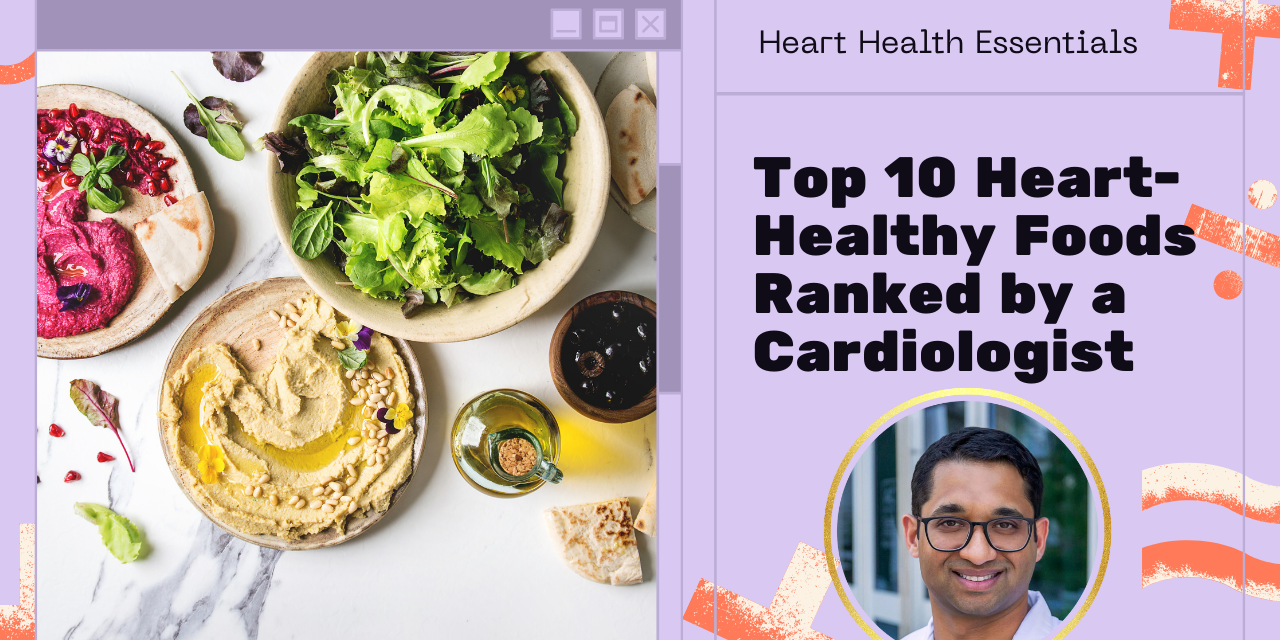Top 10 Heart-Healthy Foods: A Cardiologist's Evidence-Based Ranking

If you're concerned about your heart health—perhaps due to family history or recent elevated cholesterol readings—this evidence-based guide provides a practical roadmap. After analyzing hundreds of studies over my 15 years of practice, I've ranked these foods based on their actual impact on cardiovascular markers and real-world practicality.
The Ranking System
Each food is scored on three critical factors:
- Clinical evidence: How strongly does research support its cardiovascular benefits?
- Practical implementation: Can busy individuals realistically incorporate this into their daily routine?
- Measurable impact: Will you see concrete results on your next blood test?
Let's explore the top 10 foods that can significantly improve your heart health.
10. Dark Chocolate
Yes, chocolate makes the list—but with important caveats. Research shows that 1-2 squares of 70% dark chocolate daily can improve blood flow and lower blood pressure by 2-3 points. The flavonoids in dark chocolate act as powerful antioxidants, helping to clean your arteries.
Why it ranks #10: Most people tend to overindulge, and milk chocolate's high sugar content negates the benefits. Stick to one square of high-quality dark chocolate after dinner for optimal results.
9. Green Tea
Japanese studies following 40,000 adults found that drinking 2-3 cups of green tea daily reduced heart disease risk by 26%. The catechins in green tea help prevent LDL oxidation—the process that creates arterial plaque.
Pro tip: Let your tea steep for 3-5 minutes to maximize catechin release. Consider replacing your afternoon coffee with green tea for added benefits.
8. Tomatoes (Especially Cooked)
The lycopene in tomatoes becomes more bioavailable when heated, reducing inflammation markers by up to 30%. One study demonstrated that just 2 tablespoons of tomato paste daily improved blood vessel function within 2 weeks.
Alternatives: If you cannot eat tomatoes, other lycopene-rich options include watermelons, apricots, and pink guavas.
7. Beans and Lentils
Just 3/4 cup of beans or lentils daily can reduce LDL cholesterol by 5% in 6 weeks. These legumes are packed with soluble fiber that binds to cholesterol and removes it from your body.
Easy implementation: Add black beans, chickpeas, or lentils to salads and soups, or make quick hummus for a heart-healthy snack.
6. Berries
Nature's candy that actually benefits your heart. Blueberries, strawberries, and raspberries are anthocyanin powerhouses. A Harvard study of 93,000 women found that consuming one cup of berries three times weekly reduced heart attack risk by 32%.
Tip: Fresh or frozen berries work equally well. Add them to oatmeal or yogurt for a nutritious boost.
5. True Whole Grains
Emphasis on "true"—many products labeled "whole grain" don't qualify. Look for intact grains like steel-cut oats, quinoa, or brown rice. Three servings daily reduce heart disease risk by 22% through blood sugar stabilization and inflammation reduction.
Quick option: Steel-cut oats take just 5 minutes in a pressure cooker and provide an excellent start to your day.
4. Avocados
Consuming one avocado twice weekly can lower LDL cholesterol by 13 points while raising beneficial HDL cholesterol. The monounsaturated fats in avocados act as an arterial cleanup crew.
Portion control: Despite their benefits, avocados are calorie-dense. Half an avocado on whole grain toast makes a perfect heart-healthy breakfast.
3. Fatty Fish
Salmon, mackerel, and sardines consumed twice weekly reduce sudden cardiac death risk by 36%. The omega-3 fatty acids stabilize heart rhythm and lower triglycerides.
Note: Wild-caught fish is ideal, but farmed varieties still provide significant benefits.
2. Nuts
Just one ounce daily—about 23 almonds—reduces heart disease risk by 30%. Nuts improve artery function within hours of consumption.
Best practice: Choose unsalted, raw, or dry-roasted varieties. Keep portion-controlled bags readily available for convenient snacking.
1. Extra Virgin Olive Oil
The cornerstone of the Mediterranean diet, which reduces cardiovascular events by 30%. Four tablespoons daily significantly improves endothelial function—your arteries' ability to dilate properly.
Selection tips: Choose cold-pressed olive oil in dark bottles for maximum potency. Use it for cooking, salads, and drizzling over vegetables.
Your Action Plan
Rather than attempting to add all 10 foods simultaneously:
- Select your top 3 foods and focus on incorporating them for two weeks
- Add 2 more foods to your routine
- Within a month, you'll have naturally integrated most of these heart-healthy options
Remember: Consistency beats perfection. Following these recommendations 80% of the time will yield transformative results.
The Bottom Line
With 15 years of helping patients prevent heart disease, I've seen these dietary changes drop cholesterol levels by 30 points in just 90 days. Your genetics aren't your destiny—these simple food choices can literally add healthy years to your life.
Dr. Dabhadkar is a board-certified cardiologist with 15 years of experience helping busy professionals prevent heart disease through evidence-based lifestyle modifications.